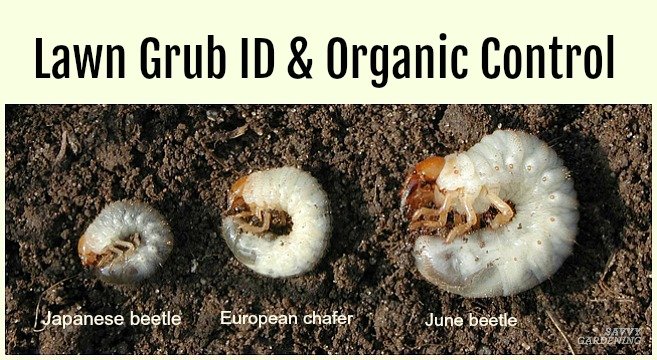
Think of controlling grub worms like creating a balanced ecosystem in your garden. Just like every superhero has a sidekick, your plants have their own allies—like beneficial nematodes and certain natural repellents. Let’s dive into how you can use these organic strategies to reclaim your lawn and garden from grub invaders without harming the environment.
Understanding Grub Worms
To tackle the problem, it helps to know who you’re up against. **Grub worms** are usually creamy-white in color, with a C-shaped form. They live in the soil, munching on the roots of your beloved grass and plants. You might wonder why they’re such a big deal. Well, when populations get too high, they can destroy your lawn practically overnight!
Grub worms thrive in moist, warm environments. They tend to emerge in late spring and early summer, so that’s when you’re most likely to notice their damage. Honestly, keeping an eye on your lawn during these times can help you catch infestations early. If you notice areas of your lawn that feel spongy or have brown patches, it might be time to investigate further.
Natural Predators: Nematodes
One of the best organic methods to control grub worms is to use **beneficial nematodes**. These microscopic worms are like the hitmen of the soil world, searching for grubs to invade. When applied correctly, they enter the grub’s body and release bacteria that kill them. It sounds a bit gruesome, but don’t worry; it’s entirely natural.
You might be wondering how to introduce these little allies to your garden. Start by purchasing nematodes from a reputable source, usually in the form of a powder you can mix with water. Apply it when the soil is moist, typically in the evening when the temperatures are cooler. This will enhance their survival chances and effectiveness. The more nematodes you have, the better your chances of winning the war against grubs!
Beneficial Insects: Nature’s Little Helpers
Let’s talk about some other helpful insects—like ladybugs and lacewings. They might not tackle grub worms directly, but they keep the overall insect population in check. When your garden teems with beneficial insects, it’s like having a security team on standby. While they mainly focus on aphids and other pests, having a diverse ecosystem can discourage grub worms from settling in.
To attract these friendly insects, consider planting nectar-rich flowers or herbs like dill and fennel. Over time, you’ll create an inviting habitat that encourages their presence. Plus, you get to enjoy the beauty of blooming flowers while helping out your garden!
Using Organic Deterrents
Another effective method to control grub worms is using organic deterrents. You might have heard of products like **Neem oil** or even diatomaceous earth. Neem oil disrupts the grub’s feeding and growth, making it harder for them to thrive. On the other hand, diatomaceous earth works by dehydrating the grubs when they come into contact with it.
Applying these products is super simple. For neem oil, dilute it with water according to the instructions on the label, then spray it on affected areas. As for diatomaceous earth, sprinkle it around your garden, especially in places you suspect grubs might be hiding. Just be mindful to reapply after heavy rain, as the effectiveness can wear off.
Healthy Soil Practices
If you’re serious about keeping grub worms at bay, focus on building healthy soil. It’s like nurturing your lawn’s immune system. Healthy soil allows plants to grow strong and deep-rooted, making them less susceptible to grub damage. One way to improve soil health is by regularly adding organic matter. Think compost, leaf mulch, or even well-rotted manure.
Another great strategy is to practice crop rotation. If you plant different species each season, you disrupt grub worms’ life cycles, making it harder for them to establish themselves. The more diverse your garden, the less likely you are to face major infestations in the future.
Timing and Monitoring
Knowing when to act can make all the difference in your battle against grub worms. Timing can help you catch them early, reducing potential damage. Generally, the best time to monitor for grubs is late summer to early fall when they start to grow and become more noticeable.
Regularly check your lawn by digging up a small section of grass and inspecting the roots. If you find a high number of grubs (more than a few per square foot), it’s time to implement your organic strategies. Keeping a close watch and acting quickly can prevent a small problem from becoming a big headache.
Companion Planting
You might not think of plants as natural pest control, but companion planting can serve as a great ally in managing grub worms. Certain plants can deter pests naturally or attract beneficial insects that help control unwanted populations. For instance, planting marigolds around your garden can repel nematodes.
Additionally, consider growing **garlic** or **onions**. These plants emit a smell that many pests, including grubs, dislike. By integrating these plants into your garden layout, you’re adding a layer of protection that goes beyond traditional methods. This approach not only improves your garden’s biodiversity but also enhances its overall health.
Dealing with grub worms doesn’t have to be a nightmare! By using these organic methods, you can effectively manage and control these pesky larvae while promoting a healthier garden ecosystem. From introducing beneficial nematodes to practicing healthy soil habits, each step you take contributes to a more vibrant and resilient lawn.
Remember, it’s about finding what works best for you and being patient. The more you engage with organic practices, the more confident you’ll become in your ability to tackle these challenges. So grab your gardening gloves, and get ready to reclaim your outdoor space—no harsh chemicals needed!
